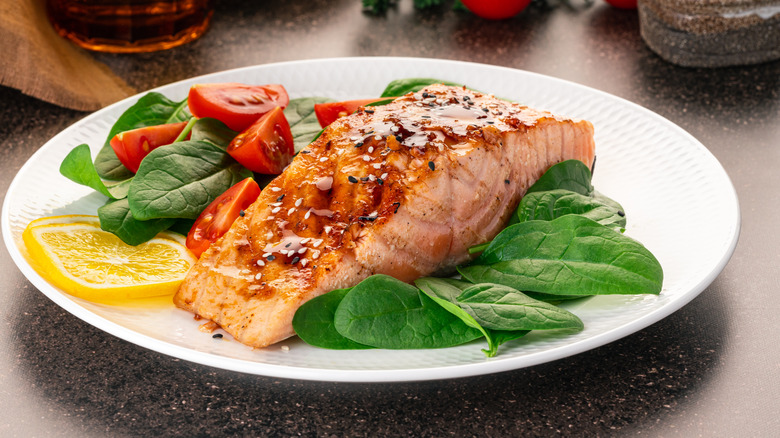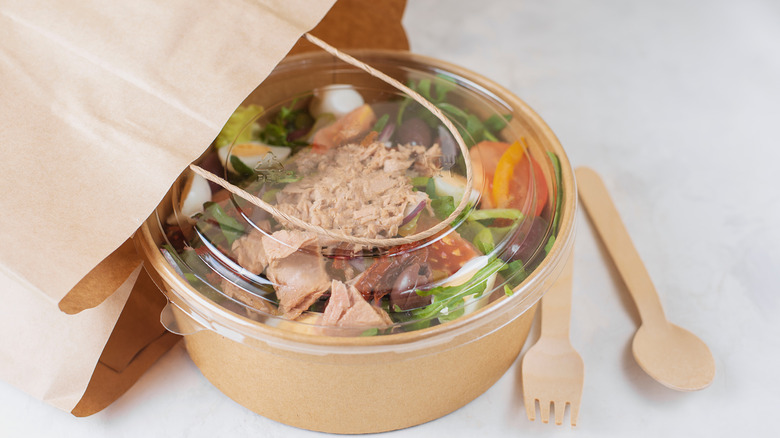When You Stop Eating Fish This Is What Happens To Your Body
A healthy diet is important to remaining happy and healthy. In fact, research has shown that 20% of premature deaths are caused by a poor diet (via Journal of the American College of Cardiology).
As for what makes a healthy diet? Everybody knows that fruits and vegetables are essential staples for a good diet, but what is less commonly discussed is the role of fish in promoting health and well-being. According to Harvard, a large study found that eating one or two servings of fatty fish per week cut a person's risk of dying from heart disease (the world's #1 killer) by 36%. Good choices of fish include salmon, anchovies, sardines, mackerel, and herring.
The American Heart Association recommends eating fish at least twice a week, but half of Americans only eat fish sometimes or not at all. According to Harvard, cutting fish from your diet could increase your risk of depression, stroke, high blood pressure, Alzheimer's disease, and heart disease. It may even increase your risk of hearing loss (per The American Journal of Clinical Nutrition). You may also be more prone to cognitive issues as you age, according to Archives of Neurology.
These people benefit the most from fish
Unless you have an allergy, seafood is good for you regardless of your current health status, but some people benefit more from fish than others. In particular, fish is recommended for people with diabetes (via Mayo Clinic), hypertension (via Harvard Health Publishing), and heart disease (via American Heart Association).
Pregnant and breastfeeding women may want to eat fish to promote their baby's development. Forgoing seafood may stunt the development of your baby's brain and nervous system, says Harvard. Studies have found that children of mothers who ate more fish scored better on tests of development, intelligence, behavior, and visual recognition.
However, high intake of mercury can also hinder a baby's brain development. For this reason, Harvard recommends that pregnant women steer clear of fish that contain high levels of mercury, such as shark, swordfish, tilefish, and king mackerel. Instead, pregnant women should stick to low-mercury alternatives such as salmon, shrimp, catfish, and canned light tuna.


